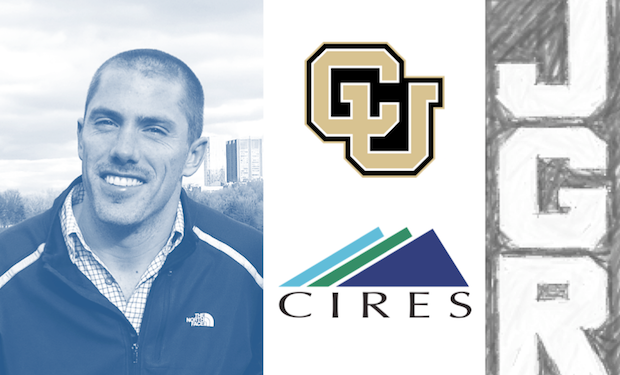6 June 2016
They got to “Ask-Me-Anything.” So, what did they want to know?
Posted by Shane Hanlon
 This is a cross-posting by Kris Karnauskas from an article originally published on the AGU Editors’ Vox blog. The original post is here.
This is a cross-posting by Kris Karnauskas from an article originally published on the AGU Editors’ Vox blog. The original post is here.
When the AGU Publications staff asked if I would be willing to conduct an Ask-Me-Anything (AMA) on the Reddit website/social media platform, my first reaction was, What is Reddit? I had mixed feelings about parting with an entire morning, but I found the prospect of answering questions from real people like DrPineappleButts and FishesNBitches in real time about the vitally important science that we do and publish at AGU too intriguing to pass up.
Lacking much in the way of expectation, I found this rapid exchange with an anonymous public collective to be astonishingly honest, elevated, and thoughtful. Contrary to my emotional preparations, I was not heckled (or “trolled”) by an agitated mob of people who deny the scientific underpinnings of climate change. Instead, two common themes emerged loud and clear by midway through the live Q & A period. One concerned the paradox of how one can be an oceanographer in a landlocked state. (Short answer: Computer models, satellites, buoys, and airplanes!) The second theme was: How is climate change affecting our oceans, how bad is it going to get, and what should I do? It was as though people came out to ask questions they didn’t feel comfortable asking elsewhere—a clear sign of the tension (and often hostility) present in American climate change discourse today. I was most struck by a question posted by the5issilent, who asked: “I come from a family that’s ultra conservative and as a result they are fierce deniers of climate change […] I can’t seem to reach past the rhetoric […] Do you have any simple observations that they can make themselves to help see the reality of it? I’ve tried to point to glacial retreat, arctic ice disappearing and record average warming year after year, but still no success. My family respects science, they’re engineers, but it seems to me they’re doing mental gymnastics to hold to their belief.”
Now, I’m not exactly comfortably speaking on behalf of an entire scientific community, but I recognized the moment questions like this appeared that this was a fleeting opportunity to have a brutally honest exchange with an open and concerned public—a far more important conversation than I would have had that morning otherwise. It is a tall order to address such pointed questions about the state of climate change science and the impacts on our oceans. Surely, many of my colleagues could have given better answers than I. But the clock was ticking, and I gathered that just being there to answer was the most important part.
I would strongly urge my colleagues across the Earth sciences to continue saying “yes” when asked to engage in dialog with the public, no matter how unfamiliar the venue or how vulnerable you may feel. At the end of the day, our work toward understanding our climate system and communicating that understanding to affect positive action is, in a way, an effort at peace—not just peace among nations, but between believers and naysayers, between humans and other species, and between humans and the planet as a whole. Our willingness to talk to each other about difficult issues is a necessary part of this process. We all know that discourse on climate science in public forums can easily be trampled by a few loud voices, but I signed off the AMA reminded that people with good hearts and open minds are out there wanting answers, just like we scientists do—they simply need a safe space to ask.
All of my responses to questions posed by the Reddit community were permanently archived by The Winnower.
–Kris Karnauskas a faculty member at the University of Colorado Boulder’s Department of Atmospheric & Oceanic Sciences and Cooperative Institute for Research in Environmental Sciences. He is also an editor of Journal of Geophysical Research: Oceans.


 The Plainspoken Scientist is the science communication blog of AGU’s Sharing Science program. With this blog, we wish to showcase creative and effective science communication via multiple mediums and modes.
The Plainspoken Scientist is the science communication blog of AGU’s Sharing Science program. With this blog, we wish to showcase creative and effective science communication via multiple mediums and modes.